In 2023 France is the host country for the most prestigious competition in international rugby union. Twenty teams will take part in the tournament, which has been held every four years since 1987. Here is our guide to the nine venues where the rugby matches will be played.
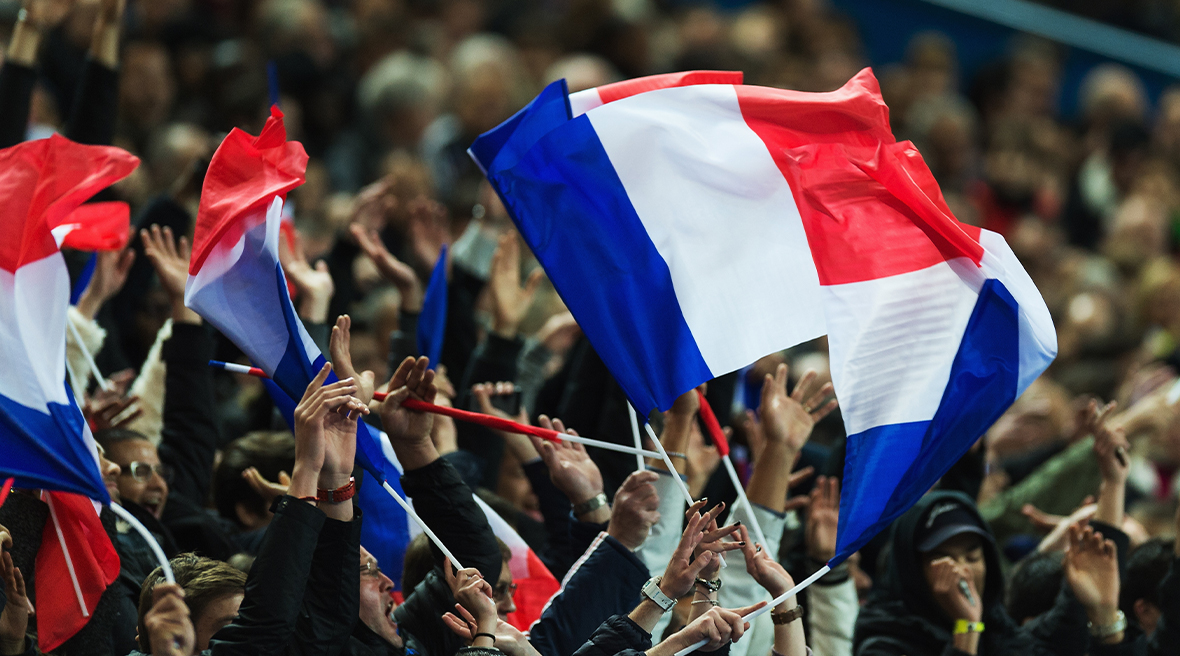
Home fans will create a fantastic atmosphere at their team’s matches
When are the matches?
The tournament is being held over a seven-week period in autumn 2023. The opening match takes place on Friday 8th September, with the final on Saturday 28th October.
Where are the matches being played?
The matches are being played at venues across France. Some are in traditional rugby hotbeds like Toulouse and Bordeaux; others at stadiums more used to football than rugby – but all are in major cities with excellent transport links.
Stade de Bordeaux, Bordeaux
Only seven years old, the Stade de Bordeaux is new to the oval ball, but with a capacity of 42,000 it promises to be a worthy international rugby tournament venue. It looks fantastic too – the stadium was designed by architects Jacques Herzog and Pierre de Meuron.
Bordeaux has a top flight rugby team, the Bordeaux Bègles, but is slightly more famous for its wines! Explore the vineyards, the museums and elegant shopping arcades in one of France’s most beautiful and cosmopolitan cities. It is sure to be a great place to visit during the tournament.
Five pool matches are here, including some big matches for the home nations.
If you're planning to drive to Bordeaux for the tournament, take a look at our Calais to Bordeaux driving guide.
Stade Pierre Mauroy, Lille
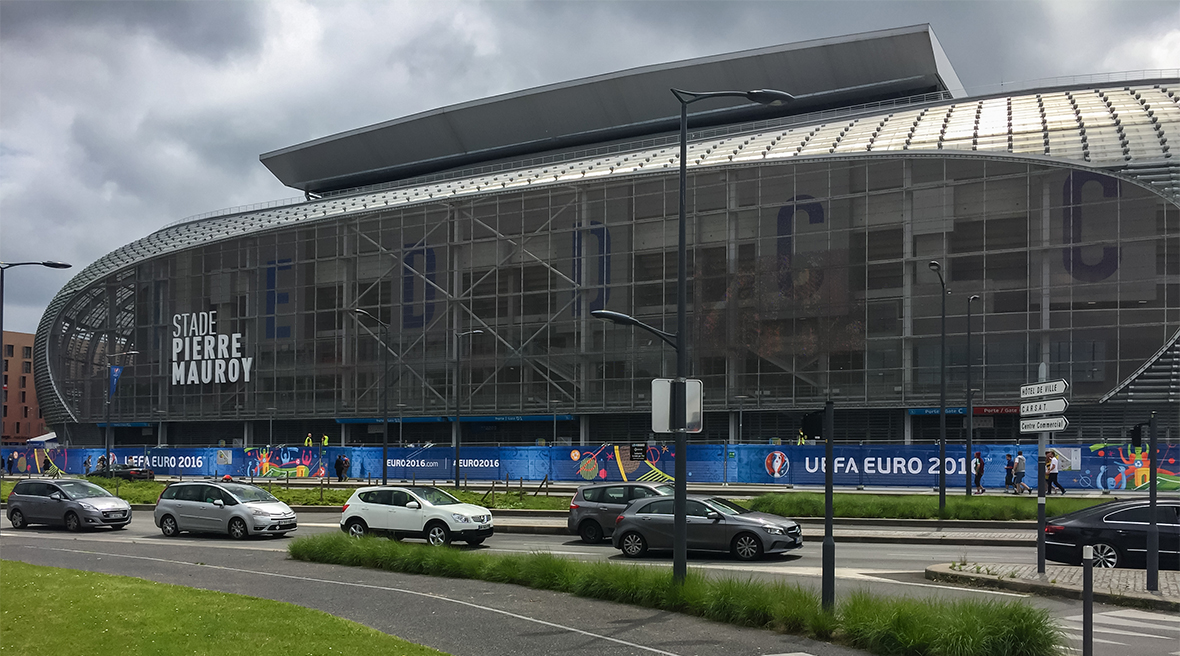
Credit: ‘Lille Stadion’, by Dronepicr, licensed under CC BY 4.0
Lille is the closest venue to our Calais terminal
Only an hour and a half’s drive away from Calais, Lille is the closest host city to the LeShuttle terminal. So Lille offers fans from the UK their best opportunity of catching a game at the tournament. The home nations have several matches here.
The Stade Pierre-Mauroy in Lille is an ultra-modern venue with a retractable roof. A special feature of the stadium, the ‘Boîte à Spectacles’, allows half of the pitch to slide back over the other to transform the venue into an arena for concerts or sports such as basketball.
Proud of its tradition of festivities and fine food, Lille is a welcoming city filled with generosity and warmth. Thanks to its unique charm, Lille offers visitors a tempting mix of Flemish cheerfulness and French elegance, making it a fascinating place to visit.
OL Stadium, Lyon
The third biggest venue for the competition, the Olympique Lyonnais stadium in Lyon will play host to some of the biggest names in rugby.
Visitors to Lyon are in for a treat. The city is celebrated as one of the food capitals of the world. There are some incredible food markets, while the traditional ‘bouchons’ restaurants serve the local specialities of beef, pork and delicious wines.
Lyon’s climate means rugby fans will still be able to bask in warm temperatures in September and October, and make the most of the city’s other attractions such as its river cruises, golf courses and green spaces.
Stade Vélodrome, Marseille
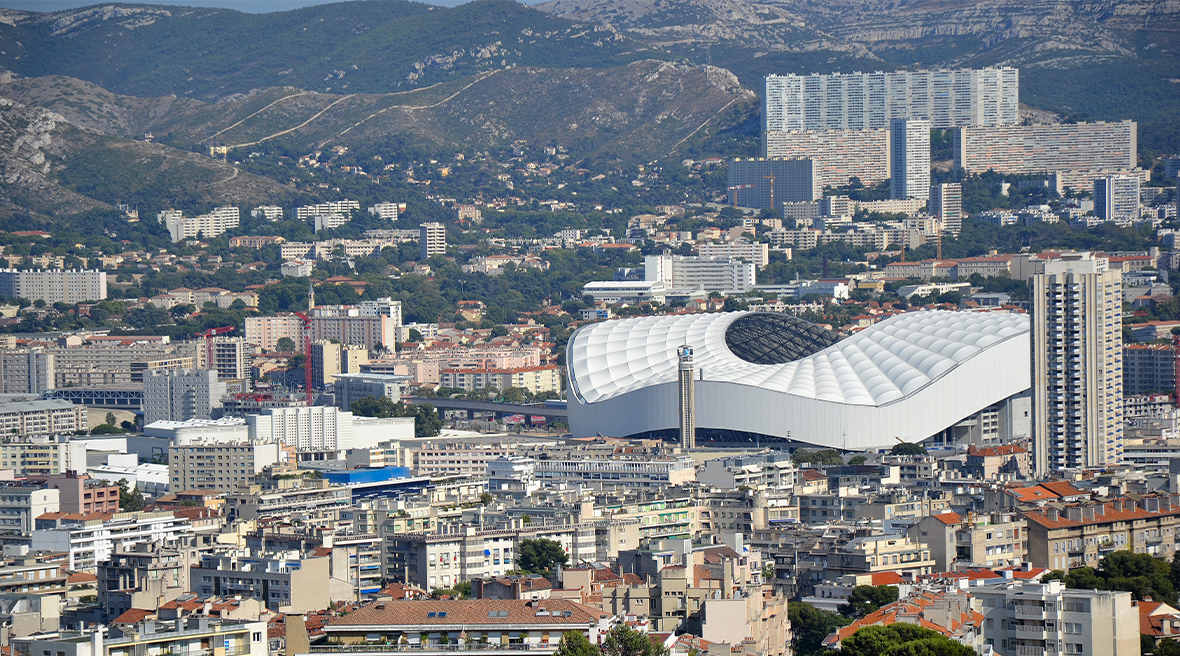
The Stade Velodrome is one of Marseille’s iconic sights
The most southerly rugby venue, Marseille, is an unforgettable city. Its stadium, the Stade Velodrome, is one of the most famous in French sport, home to the French football giants Olympique Marseille and host of many iconic matches at football World Cups and European Championships.
Two of the quarter-finals are played here, along with several big pool games.
Marseille has always been a cosmopolitan city, open to the world from its prime position on the Mediterranean Sea. Fans looking for things to do during their time in Marseille should climb up to Notre-Dame-de-la-Garde, the hilltop church which overlooks the city, stroll through the legendary Panier district, or relish a bouillabaisse, the traditional Provençal fish stew, at the Old Port.
Stade de la Beaujoire, Nantes
Four pool games will be played at the Stade de la Beaujoire in Nantes, the tournament’s most westerly venue. Driving to Nantes from Calais takes 6-7 hours.
The stadium is the home ground of football club FC Nantes and has a capacity of 38,000. It staged matches during the football European Championships of 1984 and 1998 FIFA World Cup as well as three matches when France previously hosted the competition, in 2007.
Nantes itself is a quirky and trendy city full of culture, history, beautiful gardens and parks, superb restaurants and shops. Don’t leave Nantes without a ride in the Grand Éléphant – bigger than even the bulkiest prop forward!
Stade de Nice, Nice
The Stade de Nice, also known as the Allianz Riviera stadium, is one of the newest tournament venues, having only been opened in 2013. It hosted matches at UEFA Euro 2016 and the FIFA Women’s World Cup in 2019, and is home to French Ligue 1 side OGC Nice. Leading French rugby club Toulon play occasional matches at Stade de Nice.
Lucky fans of the home nations will all be descending on the Côte d’Azur for pool matches.
With 300 days of sunshine per year, an autumnal visit to Nice will still feel like summer to a UK rugby fan! Try the Mediterranean gastronomic specialities of pan bagnat, pissaladière or socca in one of the many restaurants hidden away in the typical narrow streets of the city or on the piazzettas. Alternatively, pack a picnic and head to the beach!
Stade de France, Saint-Denis
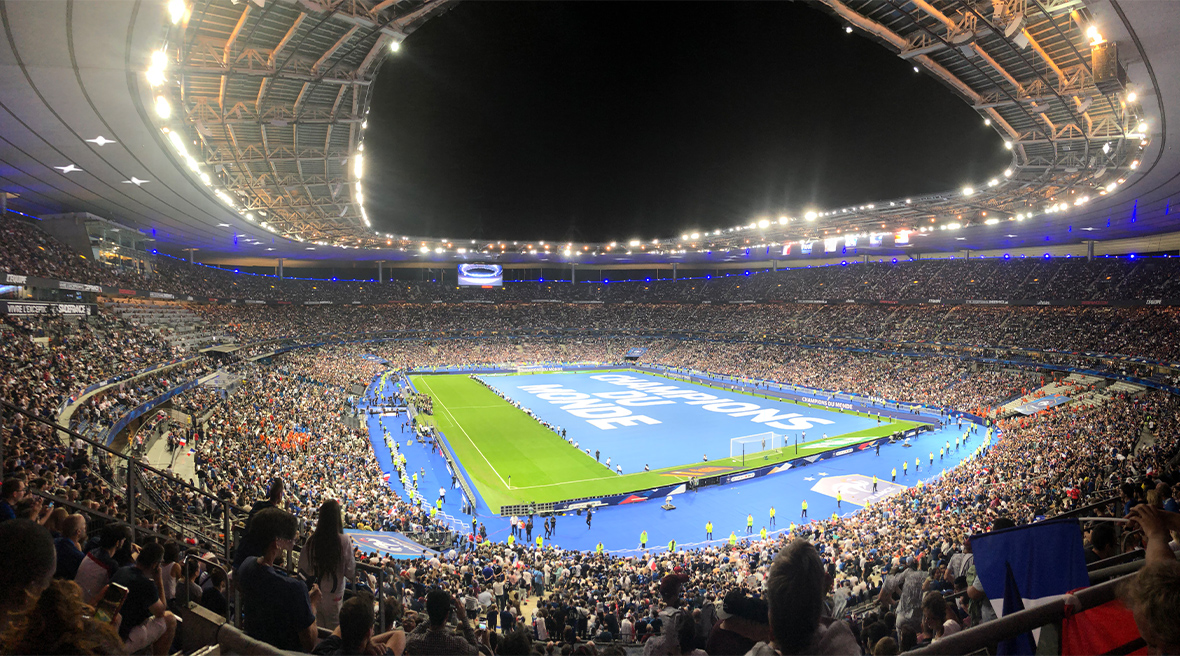
Credit: ‘Stade de France’, by Darthvadrouw, licensed under CC BY 4.0
The Stade de France will host the opening match and the final
With a capacity of 81,000, the Stade de France is the largest stadium in the country. It was built for the FIFA football World Cup of 1998, which the hosts won in thrilling fashion. It has not always been a good luck charm for ‘Les Bleus’, however, as the hosts lost there in the final of UEFA Euro 2016 to Portugal.
More matches will be played at the Stade de France than any other. It will host the opening match, three further pool games, two quarter-finals, two semi-finals, the bronze final and the final itself. The hosts will play three of their pool matches there.
Saint-Denis is a vibrant suburb of Paris only around 10km from the centre of the city. A 5-minute metro ride will get you there from Gare du Nord. The atmosphere on the journey to the host nation's matches will be incredible!
Stade Geoffroy Guichard, Saint-Étienne
A classic among French sports stadia, Stade Geoffroy Guichard originally opened in 1931. It is synonymous with its football team, AS Saint-Étienne, who have played there throughout its history. Known as ‘l’enfer vert’ (‘the green hell’) because of the green shirts worn by Saint-Étienne and the intimidating atmosphere the fans create, the 42,000 capacity stadium hosts four matches during the tournament.
Saint-Étienne has a rich industrial past and was considered the industrial capital of Europe in the 19th century. It values its distinctiveness and pioneering spirit and is the only French city to be designated a City of Creative Design by UNESCO.
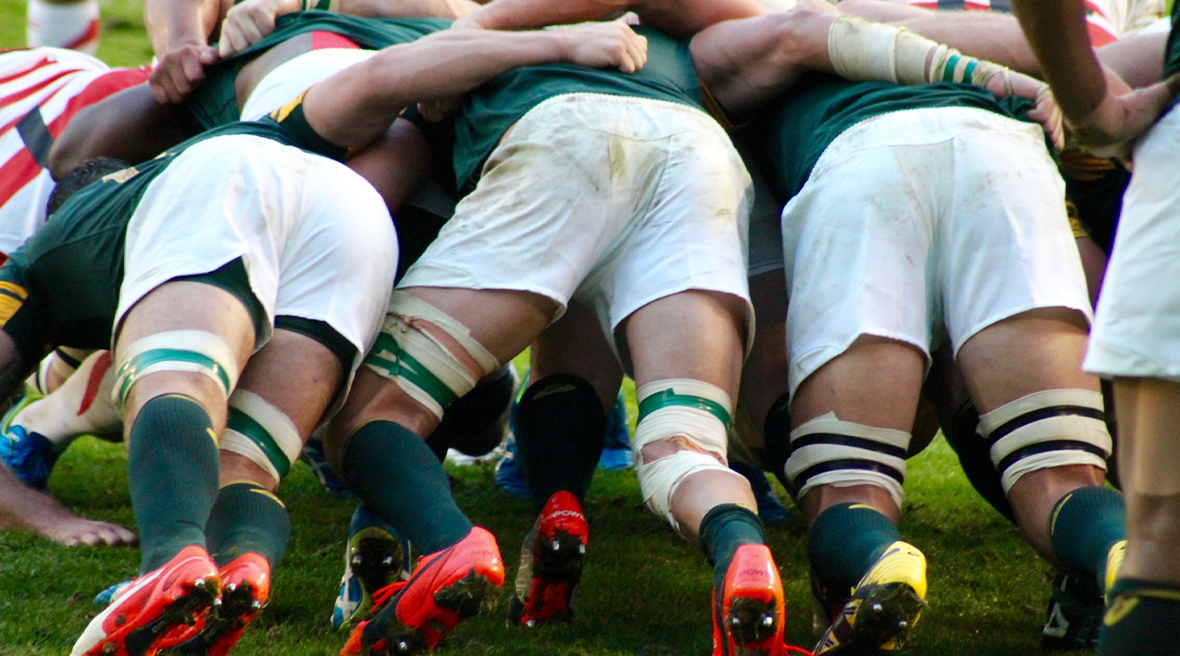
There will be a scrum for tickets!
Stadium de Toulouse, Toulouse
Of all the host cities Toulouse is the one where a love of rugby is felt wherever you go. Its club Toulouse are multiple domestic Top 14 champions and European Champions Cup winners. Famous French players to represent Toulouse include Thomas Castaignède and Gaël Fickou. The club play major games at the Stadium de Toulouse, but its usual home ground is the smaller Stade Ernest-Wallon.
The Stadium de Toulouse, known as ‘Little Wembley’, hosts five games during the competition.
The ‘Pink City’, so called because of the colour of bricks used in all of its notable buildings, welcomes you with the friendliness you’d expect from a rugby-loving community. If fans get a day to explore Toulouse they should make for the Basilica of Saint-Sernin, the photography museum at Galerie de Château d’eau, and La Citié de l’Espace, the space museum.
Follow the rugby action with LeShuttle
It is sure to be a scrum getting tickets, but if you are lucky enough to emerge with one, why not combine it with a holiday in France? You might even be tempted to follow your country from game to game around the country. Like a nippy winger surging down the touchline, LeShuttle doesn’t mess around and can get you to France in around 35 minutes – less time than a half of rugby!